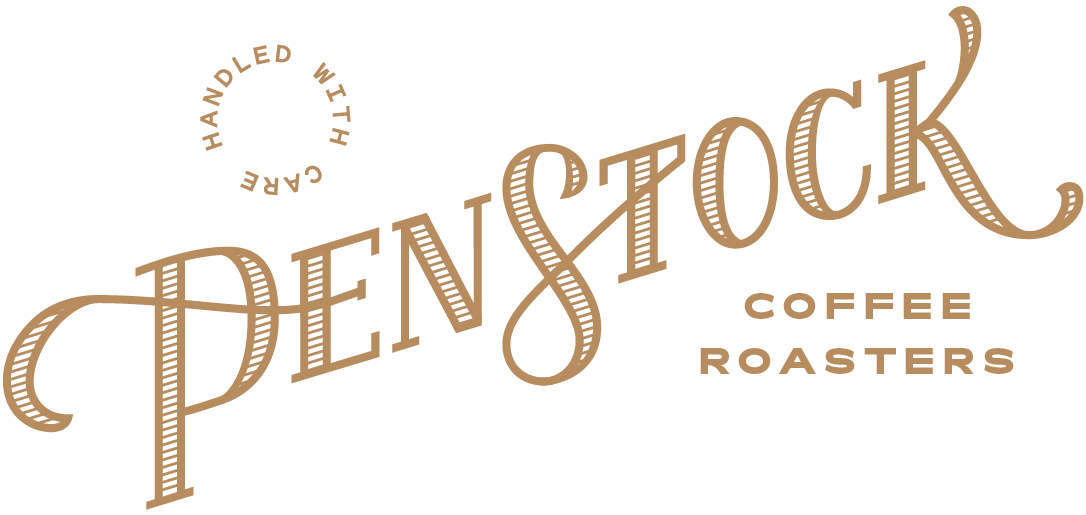Ethiopia SNNRP Gedeo Gedeb Chelchele 1 Organic Natural Tibebu Roba
Since day one, we’ve said transparency and traceability will guide our coffee buying practice. In 2019, that should be easier than ever: between the internet and more awareness, you can know more about a given coffee’s provenance than ever before. And yet, more information has translated into more confusion. Take the name of this post: What is Gedeb? What does Grade 1 mean? Is natural related to organic or something else? What is Tibebu and Roba? If you can answer all those questions, you probably work in the coffee industry. Truthfully, though, most people in the coffee industry could not answer those questions.
At Penstock Coffee Roasters, we help you out through how we name our coffees. We always designate a coffee by the name of its:
Farm: small or large, all coffee comes from trees that grow on one or more farms. When we buy a coffee from a single farm, we call it by the farm name. Typically, there is one owner of the farm and in every case, we know the owner’s name. That said, sometimes family’s own the farm; sometimes we buy from multiple farms owned by the same person. In those cases, calling a coffee by a farmer’s name would be confusing since the flavor would represent not only the farm owner’s vision for coffee, but also the distinct terroirs of each farm and the many other hands that may have been involved.
Mill: all coffee goes from a farm to a wet and then a dry mill; usually the two are combined. In many countries, farms are too small to sell, much less export their coffee. So, they sell their small harvest to a central mill, which combines lots from dozens up and up to hundreds of farms. When we work with a mill that purchases from it’s neighbors, we call it that.
Cooperatives: some farmers choose to organize or join cooperatives. This enables them to pool their resources (and their coffees) to fetch certifications (all Fair Trade coffee must come from democratically organized cooperatives). Typically, these cooperatives represent many farmers across many regions, and they often run several mills. Coffee is collected and blended in ways that make the farm name or mill hard to specify.
That’s it! “But wait!” you say. “What about all the names of all the coffees that don’t mention the farm, mill, or cooperative. That is indeed why coffee is so confusing: folks call coffees by any number of things. Sometimes, coffees get named for a friend’s dog or a clever music reference. Sometimes folks tag a coffee by the region name (e.g., Yirgachefe or Guji). If you have nothing else to go on, that’s not a bad thing; you have to call it something. But to most of us, the difference between Ethiopia Gedeo and Godot Blend is just the word’s “Ethiopia” and “Blend”; Gedeo might as well be Godot. In the case of most coffees, traceability makes it impossible to call a coffee by anything other than the country and a word that means big beans and low defects (e.g., Colombia Supremo). Nowadays, we know as much about a coffee as we do many of the finest wines. To finish out the coffee mentioned in the title, we could call it Ethiopia Gedeo or Ethiopia Chelchele or Tisfaye Roba or Tibebu Roba. All reflect some aspect of the coffee’s provenance. None are clear, however, without more information designating what those things are:
Ethiopia: an East African country
SNNPR (Southern Nations, Nationalities, and People’s Region): a Region in Ethiopia akin to a US State.
Gedeo: a Zone in Ethiopia akin to “South Jersey” (only Gedeo is much larger). It is sandwiched between Borena, Sidama, and Guji.
Gedeb: a district in Gedeo akin to a small county or municipality
Chelchele: a small town and mill in Ethiopia.
Grade 1: a designation Ethiopia gives to coffees with the lowest defect counts
Organic: a certification paid for by the farm owner to a third party agency
Natural: the processing method, that is, the method used at the wet mill to remove the cherry from the coffee seeds/beans. In this case, the cherry dries on the bean before being hulled off.
Tibebu Roba: the name of the farm owner. His farm amounts to about 20 acres, and is processed at Tisfaye Roba’s mill, Chelchele.
